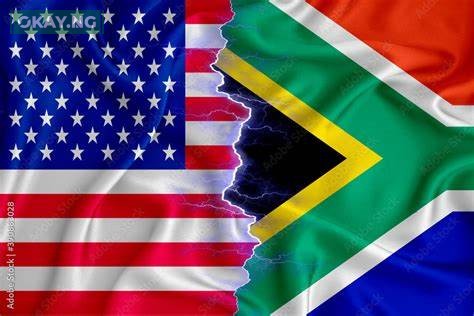South Africa has adopted a strategic approach of negotiation rather than immediate retaliation in response to the recently imposed tariffs by the United States, announced by President Donald Trump. This decision, conveyed by senior government officials, signals a focus on securing exemptions and quota agreements to mitigate the economic impact.
President Trump’s announcement introduced a 31% tariff on U.S. imports from South Africa, embedded within a broader 10% baseline tariff on all imports and higher targeted duties on numerous nations. This move has significant implications, considering the United States is South Africa’s second-largest bilateral trading partner, trailing only China.
“To say we will impose reciprocal tariffs without first understanding how the U.S. arrived at 31% … would be counterproductive,” stated Trade Minister Parks Tau during a press conference. He highlighted that South Africa’s average tariff on imports stands at 7.6%, emphasizing the need for a measured response.
Foreign Affairs Minister Ronald Lamola further elaborated on the situation, pointing out that Trump’s tariffs effectively undermine the advantages African countries have enjoyed under the African Growth and Opportunity Act (AGOA). The AGOA initiative, which grants qualifying African nations duty-free access to the U.S. market, is set to expire in September. This development casts doubt on the renewal of the trade accord, established in 2000.
The government’s response underscores the urgency for South Africa to diversify its export markets, identifying Asia and the Middle East as potential avenues for growth. In the immediate term, the government has pledged to support industries most affected by the tariffs, including car manufacturing, agriculture, processed foods, and metals. Notably, the government will maintain the benefits U.S. carmakers enjoy under its Automotive Production Development Programme, an incentive scheme.
Read Also: South Africa Equities Downgraded: Economic Slowdown Concerns
South Africa’s National Treasury has estimated that losing AGOA status could potentially reduce economic growth by less than 0.1 percentage points. The central bank’s modeling, however, suggests that depending on the severity of the trade barriers and the impact on financial market sentiment, the effects could range from under 0.1 to 0.7 percentage points.
Furthermore, the existing 25% tariff on all vehicles and car parts imported into the U.S. presents a significant challenge to South Africa, which exports over $2 billion annually in these products.
As an observer of these developments, I recognize the delicate balance South Africa must maintain. The decision to prioritize negotiation reflects a pragmatic approach in a complex international trade landscape. The impact on industries like automotive, a critical sector for South Africa, will be closely monitored. The government’s focus on diversification and support for affected industries signals a proactive stance in navigating these challenges.









